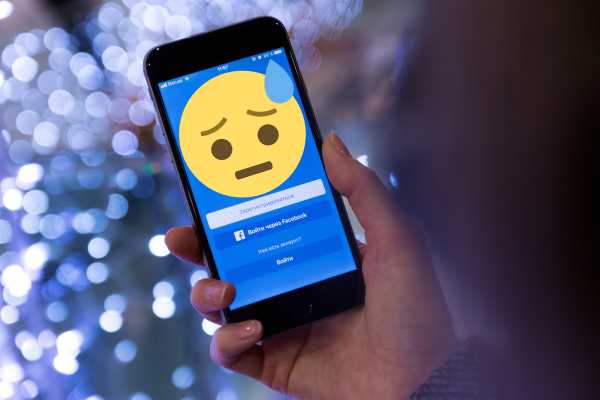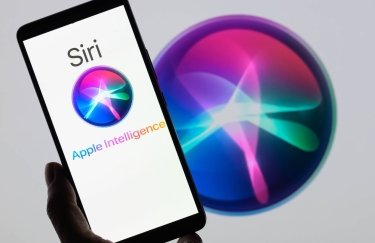
To say Facebook has had a rough time of it lately would be putting it mildly. Between fake news, falling stock, and glaring data breaches, the social media giant is in the middle of a public reckoning (and a self-reassessment) that is perhaps long overdue.
But Facebook users, in the middle of what seems to be a moment of broader cultural backlash against social media and technology, are also clearly grappling with the ramifications of their use of the platform.
Since reports of Cambridge Analytica’s massive harvest of Facebook user data surfaced last week, multiple media outlets have responded by reminding an agitated public that they do have options for deleting their Facebook accounts. And while alternative takes have made larger cases against Facebook’s core business model, the emphasis has largely been on users making up their minds about how to deal with the company on an individual level.
However, this emphasis fails to take into account both Facebook’s position in modern society and the stakes involved for anyone who chooses to leave a network that has spent more than a decade trying to make leaving it impossible.
At this point, “Why don’t you just delete Facebook” is the internet’s equivalent of asking, “Why didn’t they just leave before the hurricane came” — because it vastly misrepresents how embedded Facebook is at every cultural turn most of us take, and deflects social responsibility away from Facebook onto the users who have been directly impacted by the company’s lack of accountability.
There are three main reasons most people can’t just up and leave Facebook, and they all serve to illustrate the extent to which Facebook has altered the landscape of our digital lives. Let’s break them down.
1) Facebook is technologically embedded within a vast web of interconnected third-party apps and social media platforms
You’ve probably heard cracks before that Twitter humor largely consists of jokes made on Tumblr being shared as screenshots on Facebook, but within this joke is a larger point about how all of these systems interconnect and interact. The web is made up of third-party apps and systems, many of which rely on being fully integrated with your personal Google or Facebook account.
In fact, many mobile and web-based apps actually require you to have a Facebook account — and only a Facebook account — before you can use the app to begin with. Over the years, consumers and other developers have pushed back against this trend, but the truth remains that if you delete your Facebook account, you could immediately lose access to parts of the internet. For example, you’re required to have a Facebook account to use Tinder, so deleting Facebook would mean losing access to the app completely, along with all of your Tinder connections. If you don’t realize that before you delete Facebook, then you could be totally cut off from anyone you may have met through Tinder.
Additionally, you could find yourself having to laboriously create new accounts for any number of apps that you’ve been logging in to all this time using Facebook — anything from Spotify to Airbnb to Patreon, ride-hailing services, online retailers, and more. Not only is this obnoxious, but you could also lose access to important content and information saved in your original accounts.
Even if you don’t particularly care which apps your Facebook is linked to, there are several core problems with this trend — problems that apply equally to Google, which arguably shares much of the internet’s infrastructure with Facebook. The biggest of these problems is that when you create an infrastructure that assumes everyone is using only one or two major platforms for their daily internet use, you create an internet where using only those two platforms becomes a tacit requirement.
And for many, using Facebook is also a literal and direct requirement.
2) For many people, using Facebook regularly is a required part of their job or education
When I quit Facebook, I assumed it would be for good, but I was wrong. About 18 months after I attempted to leave it, I was ordered back on — by a previous employer who insisted that all reporters have Facebook.
The question of whether journalists are able to do their jobs without Facebook notwithstanding, in a fully digital society, there are a vast and increasing number of jobs that this stipulation applies to: marketers, web developers, social media managers, publicists, anyone wishing to effectively promote personal or professional projects, and so on. I can’t count the number of times I’ve sat in panels on writing or other creator guide sessions and heard panelists dictate that anyone wanting to be taken seriously or promote their work must be on Facebook.
The pressure to be on or use Facebook in order to self-promote, distribute information, and do one’s job effectively is so pervasive most of us probably don’t even really think of it as pressure to conform. Of course businesses and anyone with a personal brand has to have Facebook. Don’t they?
We’re used to the idea of businesses, self-promoters, and “branded” individuals needing and using Facebook, but this pressure also applies to schools. In 2012, Facebook launched Facebook Groups specifically tailored to schools — creating a “walled garden” that students frequently use to promote school spirit and create next-level internet memes.
Collective use of the platform by schools and other educational groups means that, just as with third-party app developers, some organizations still require you to have a Facebook account in order to access information and services. Facebook itself has made inroads into developing technology specifically for school use. Students prepping for college are warned that universities will be watching their social media accounts in order to spot excellent community behavior and social media usage, as well as to pinpoint any red flags.
All of this reliance on Facebook once again means the assumption that everyone is already on Facebook marginalizes anyone who’s not on Facebook, making it harder for anyone not using the platform to access the same degree of communication and information sharing. That’s vital for any job or education system where Facebook is involved. But it’s also vital where social communities are concerned.
3) Facebook is, for better and worse, a tangible tie holding many people to their communities
This final issue with deleting Facebook is the hardest to quantify, but one that’s fundamentally true for most of us: If you delete Facebook, you lose touch in ways that have subtle but tangible emotional repercussions. Your aging Great-Aunt Sally will fret because she has one less way to keep track of you, your high school English teacher will be mad because you never write on his Facebook wall anymore, and your friend will be annoyed because you can no longer see the drama happening with his girlfriend’s ex. You’ll be annoyed because your other friend issued a general Facebook invite to her birthday party and you missed it.
And while the infuriating barrage of polarizing opinions that make Facebook so difficult for many of us to deal with will disappear, so will connections to people you didn’t realize you wanted to keep in touch with until you moved on.
For many, this complicated web of emotional stakes only exists on Facebook, because Facebook is the only social platform on the web where who we are now, in adulthood, converges with the past life we had as a teen or a college student. On Facebook, the many friend networks we’ve made along our paths through life converge and create a unique kind of emotional infrastructure that’s impossible for some people to fully separate from, because it means cutting off the only remaining ties to parts of their pasts, or to previous places they have lived, and even to some family members and friends. To many of the Facebook users you leave behind, walking away from Facebook will send a message that you don’t want to cultivate ties with them — because for many people, Facebook is the only place those ties can be cultivated.
It’s true that the vast majority of Americans still rely on phone calls as the first method of staying in touch with friends and family. But more than 20 percent of US adults told Pew researchers in a 2015 survey that they also rely heavily on Facebook and other social media platforms, a number that’s probably only grown in the years since. Facebook makes it increasingly easy to substitute virtual communication for physical interaction, and we have adapted to this switch as a culture.
That means there’s cultural and social pressure to stay on the platforms that people are most likely to use to find you — for example, when, disaster strikes and you need to mark yourself safe. Then there’s the use of Facebook as a kind of digital scrapbook, to preserve life events, shared moments, and memories. Sure, it’s a cliché — but it’s also real, and it is yet one more tie binding people to the site.
These are real reasons not to walk away from Facebook, and they’re also telling ones: They reflect the uncomfortable truth that while the internet may have expanded our virtual communities, it’s also resulted in fragmented echoes of our physical communities. Facebook has changed how we interact with our pasts, and how we interact with the places and people we call home.
So despite the increased calls to quit Facebook, it’s okay if you don’t feel like you can afford to do so — whether it’s for personal or professional reasons, or just because you don’t want to have to create a whole new Spotify account because in 2011 you could only sign up for Spotify using Facebook and now you have 800 playlists memorializing your last breakup that you can’t bear to lose. All of that is valid, and it illustrates why the onus should never have been on individual consumers to walk away from a platform that has monopolized so much of their internet infrastructure while giving them so little in return.
Facebook CEO Mark Zuckerberg has acknowledged this much in recent public statements regarding the Cambridge Analytica data breach — but what needs far more acknowledgment is that Facebook has far outstripped the moniker of “social media.” If we think about the internet as a global system, then Facebook is a global world power, and it’s high time we acknowledge that such global power comes with monumental social responsibility. That requires major global leadership and oversight, as well as increased self-scrutiny and accountability from Facebook itself.
It does not, however, require you to quit Facebook.
Sourse: vox.com






